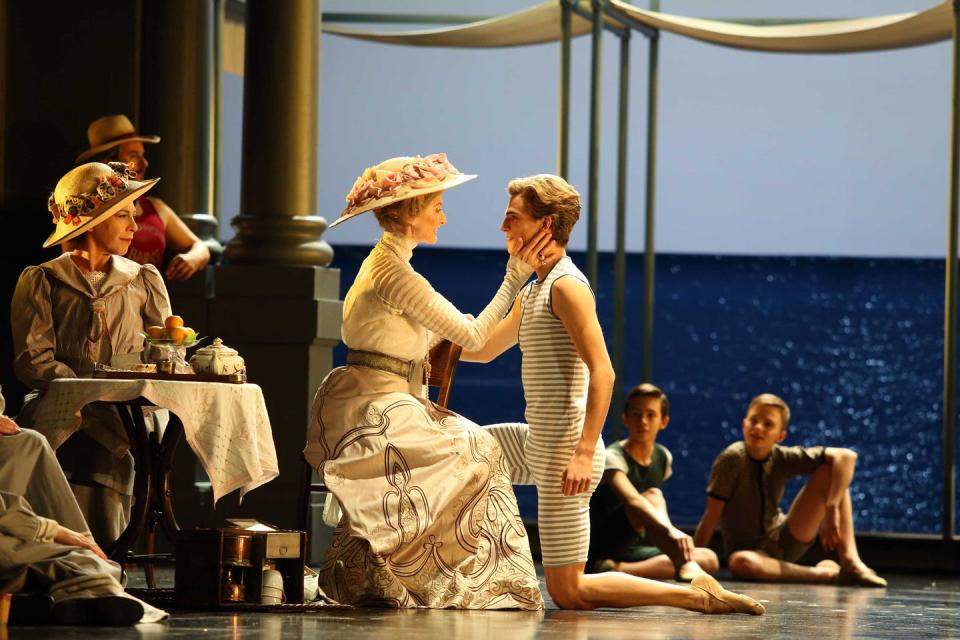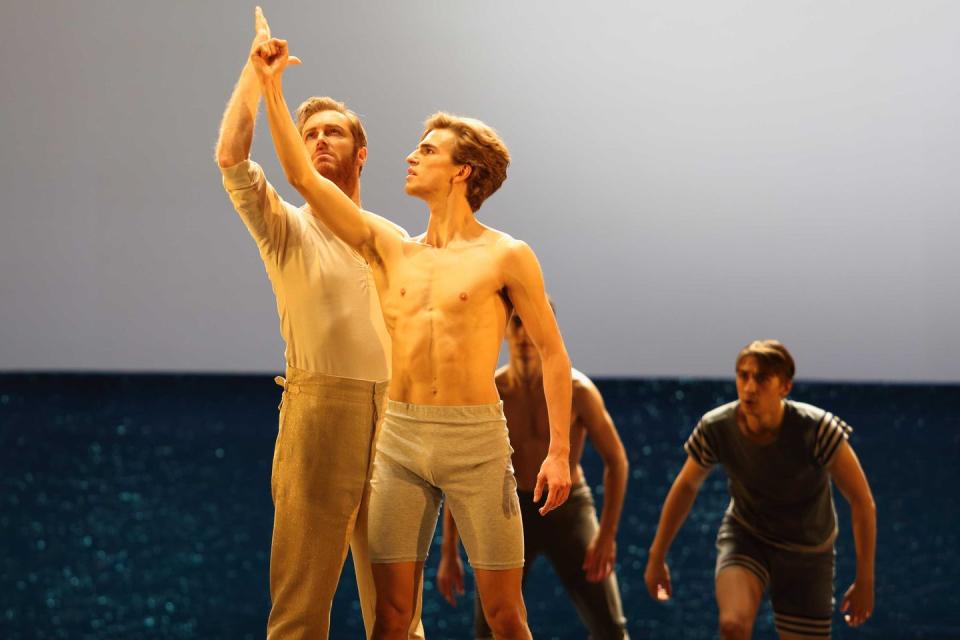Britten’s final opera returns to Covent Garden this December

Visconti beat Britten to it. His cinematic take on Thomas Mann’s novella, describing an artist’s doomed obsession with a Polish boy, came out in 1971. Britten refused to watch the film while composing what would be his final opera, the following year. As his biographer, Humphrey Carpenter, tells us, Britten was so paranoid about falling under the Italian auteur’s influence that when a friend gave Britten a copy of the novel, already republished with a print from the arthouse movie on the front (a bespectacled Dirk Bogarde as Aschenbach), he was careful to send it with the photo covered up.

The plot is simple – barely more than a short story. An author, Aschenbach, suffering from writer’s block, is encouraged by a mysterious foreigner to go on holiday. Aschenbach plumps for Venice and ends up at the Hotel des Bains on the Lido. Here, he becomes fascinated by a beautiful Polish youth, and the rest of the opera charts his descent from intellectual appreciation to a raging carnal passion for the boy, set against an outbreak of cholera in the city.
Britten wrote the role of Aschenbach for his muse and lover, the tenor, Peter Pears; and much of the opera is written with Pears’ declamatory strengths in mind – Aschenbach is often seen addressing the audience, accompanied by only a piano. Any production of Death in Venice requires a tenor of rare eloquent intelligence to hold the piece together, and with Mark Padmore, David McVicar’s new production has one. Like Pears, Padmore is a celebrated song recitalist, and he brings that discipline to his performance. Tastefully shaping every word, he delivers with perfection, using his slender voice brilliantly to convey the vulnerability and bathos of his character’s infatuation and death. On stage, he cuts a donnish figure – a bundle of nervous energy.

In these less innocent times, Covent Garden has wisely cast the Polish boy Tadzio, with the older-looking Royal Ballet soloist, Leo Dixon, here choreographed by Lynne Page. It makes Aschenbach’s love seem just that little less transgressive than it would be if Tadzio were played by a more childlike actor and dancer.
Vicki Mortimer’s sets are dark and spare – a misty Venice of marble, not of brick and stone – appearing reminiscent of Santa Maria della Salute, the church Venetians built to give thanks from their deliverance from the plague. This contrasts with the golden light of the Lido scenes in which Tadzio disports himself with other holidaying youths, watched by the doomed figure of the writer.

Britten adds the supernatural to Mann’s story, with Apollo and Dionysius fighting over Aschenbach: form and beauty, against chaos and passion. Apollo is sung by a counter tenor, that other worldly male falsetto sound, and Tim Mead sings the role with purity of tone. Britten’s masterstroke in the opera was to cast, rather in the vein of Kind Hearts and Coronets, one singer to play seven roles, all of whom connive to bring about Aschenbach’s downfall. Gerald Finley, celebrating 30 years at the Royal Opera, sang wonderfully and had a high time playing all seven – his Italian barber, a masterpiece of comic timing, would alone be worth the price of the ticket.
The supporting cast was excellent throughout – the chorus in particular – in what was an unforgettable evening of music theatre led by Richard Farnes in the pit. This troubling piece has found modern-day advocates worthy of its genius; and with only a short run of performances, I cannot wait for it to come back.
‘Death in Venice’ is at the Royal Opera House until 6 December.


